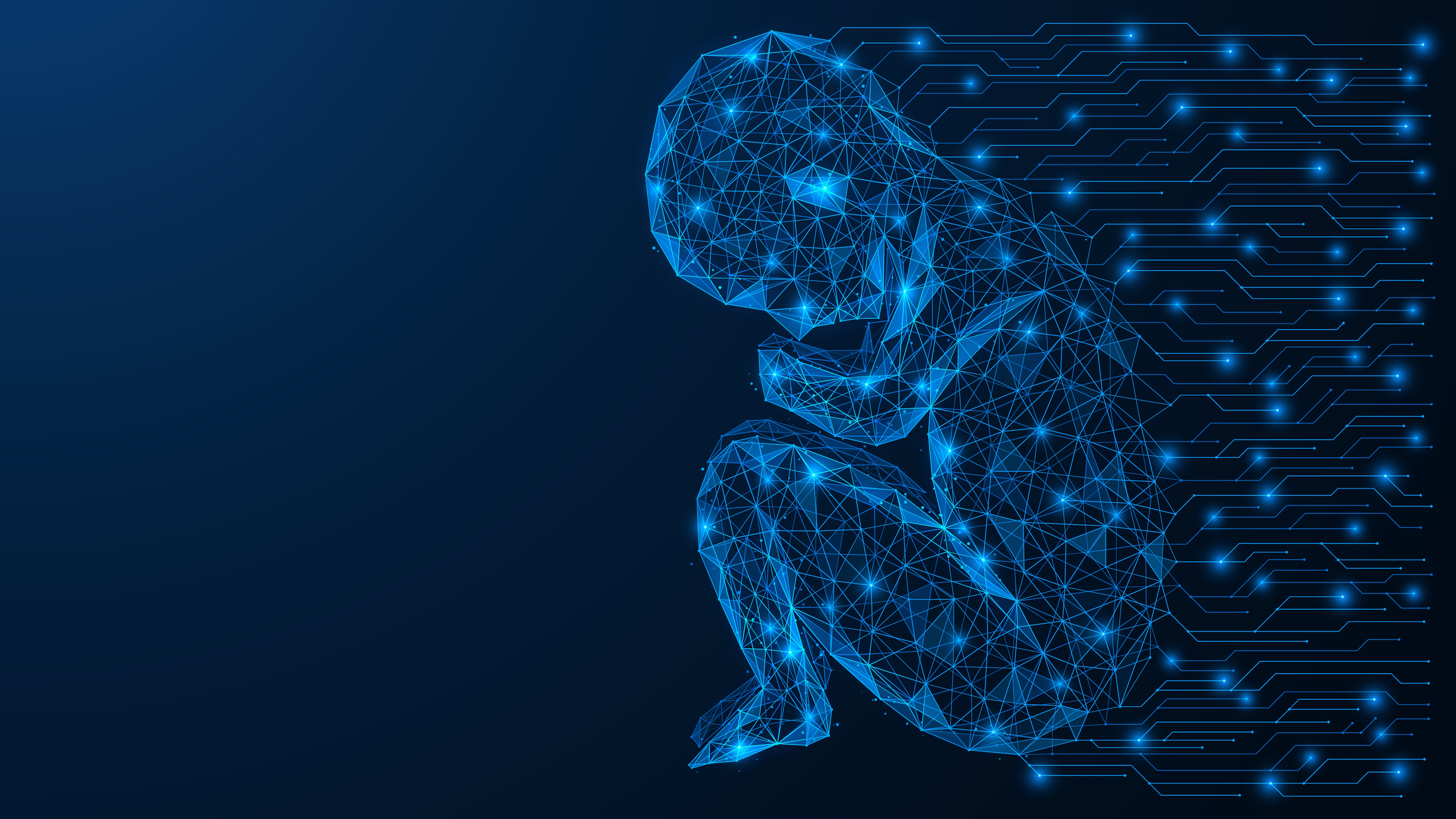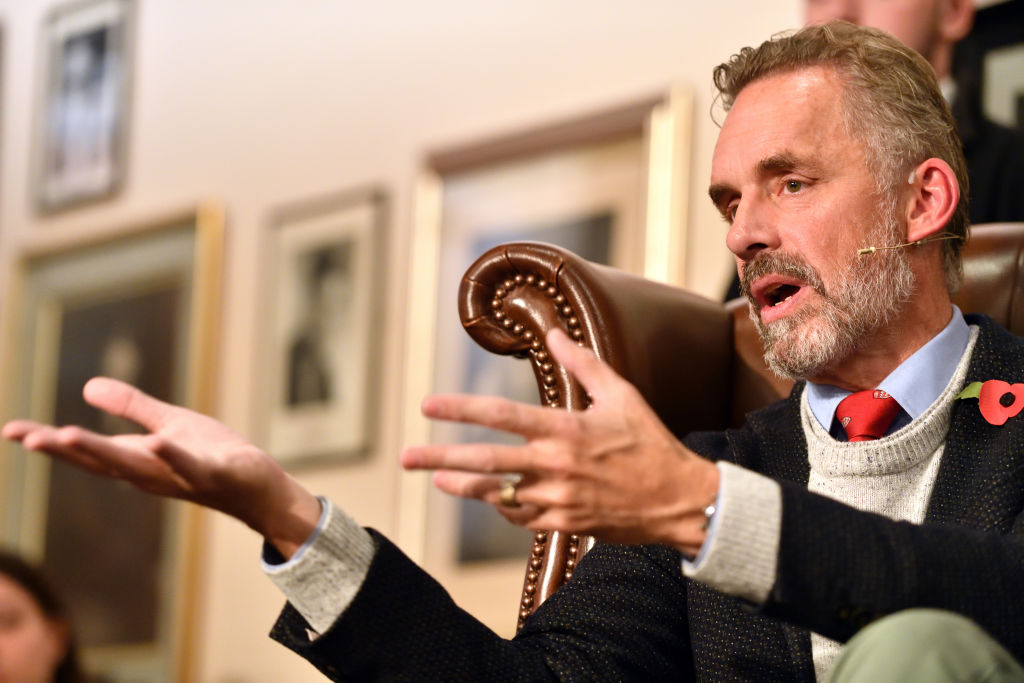Manufacturing and experimenting on embryonic human beings is clearly unethical.
Maybe the Idea of the Soul Isn’t Crazy After All

Modern science can’t give an account of itself.
We have all had that unusual guest who doesn’t quite fit in, at least not in our respectable circles. The belief in the soul is like that unusual and unwelcome guest that doesn’t quite fit in, at least not in respectable scientific circles.
The notion of the soul as being the core of persons who are free, have religious experiences, and potentially exist disembodied is deemed by scientists of various backgrounds as outmoded and expired.
Physicist Sean Carrol implies this when he attributes the supposedly crazy idea to Adam Frank that science should have something to say about the soul and the afterlife. He states: “When we disagree it’s with the kind of respectful dialogue that should be a model for disagreeing with non-crazy people. But here he couldn’t be more wrong.” But Carrol doesn’t end here. He makes one clearly outrageous claim when he says: “Claims that some form of consciousness persists after our bodies die and decay into their constituent atoms face one huge, insuperable obstacle: the laws of physics underlying everyday life are completely understood, and there’s no way within those laws to allow for the information stored in our brains to persist after we die.” But maybe this has less to do with ideas about gods, souls, and the afterlife and more to do with the deficiency of physics as an explanation for all things.
New Atheists like Richard Dawkins, Daniel Dennett, and Sam Harris express contempt for the soul, the afterlife, and God, among other things. They too would have you believe that the soul is not only unacceptable but, along with Sean Carrol, a crazy idea. In a similar spirit (no pun intended), Bruce Hood, Developmental Psychologist at the University of Bristol, applies the logic of the soul to the self, noting, “It seems almost redundant to call for the retirement of the free willing self, as the idea is neither scientific nor is this the first time the concept has been dismissed for lack of empirical support.”
Co-discoverer of DNA Francis Crick confirms the absurdity of believing in the soul when he says: “You, your joys and your sorrows, your memories and your ambitions, your sense of personal identity and free will, are in fact no more than the behavior of a vast assembly of nerve cells and their associated molecules.” The philosopher Owen Flanagan seems to think science is a kind of savior from such maddening beliefs when he writes that “desouling is the primary operation of the scientific image.”
Even the religious philosopher of science Nancey Murphy suggests the soul, along with its closely associated idea of body-soul dualism, is not scientifically acceptable. As she argues, these concepts are not welcome at the table of respectable scientific discussions:
While body-soul dualism is a hot topic now in conservative Christian circles in the United States, the debate over dualism versus physicalism is thought to be settled by scholars in a variety of fields…. [B]iblical scholars called body-soul dualism into question beginning a century ago (but given the current popularity of books for and against the soul, they apparently neglected to inform their congregations!). The concept of the self has long served as a replacement for the soul in a number of disciplines, such as psychology, and in ordinary language as well. No significant neuroscientist has been a dualist since the death of Sir John Eccles.
Souls are not respectable options when we think about human beings. Not even religious or biblical scholars need it. In fact, we can understand the soul as a self that has no recourse to an immaterial, dualistic entity.
So why should we accept this unusual and unwelcome guest? The case thus far, according to these authorities, doesn’t fare so well for the soul.
And yet, as Stewart Goetz and Mark Baker have noted, “Most people, at most times, in most places, at most ages have believed that human beings have some kind of soul.” This is the common view called dualism, the view that humans are comprised of two distinct parts that are non-reducible to the other or have two sets of distinct properties (or attributes) that are not describable by the other nor identical because they are radically different. One is a set of properties of bodies and brains that function according to biological laws and physics, and the other are properties of experience, intentionality, and mental recall. Take the common example of pain to reveal this distinction. There is one type of property in my knee when I hit the table as I rise from my chair (it might give off a blue color where the blood rushes to that spot), and the other is the felt quality when I experience it. These two properties are different and radically so. The very reason Goetz, Baker, and others believe this soul-idea is because, as many would say, “it’s natural.” It is simply a piece of common sense.
Why is that? It seems to be the case because we naturally, intuitively, and automatically make a distinction between our bodies (and the parts of it) and our minds—the part that has experiences, makes decisions, has intentions, and can access thoughts and memories at will. This is part of the reason the famous psychologist Paul Bloom has argued that as children we are natural born dualists (an idea something like what we find in René Descartes). Anthropologists and sociologists have noted this as well, including the anthropologist Alfred Gell, who argued that it seems ordinary human beings are “natural dualists” and are inclined, more or less from day one, to believe in some kind of “ghost in the machine.” It seems, then, there are good reasons for believing in the soul or something like it.
Philosopher Thomas Nagel has made a surprising case that favors something resembling a soul in his argument that the empirical sciences fail to give an accounting for consciousness and the conscious self. (Of course Joseph Levine and David Chalmers have done something similar in recognizing and giving credence to properties descriptive of minds compared to bodies.) Nagel states: “The existence of consciousness seems to imply that the physical description of the universe, in spite of its richness and explanatory power, is only part of the truth, and that the natural order is far less austere than it be if physics and chemistry account for everything.” He supports the notion of “subjective appearances” as being the sort of idea that physics alone, with its attendant focus on the study of physical objects, particles, and the like, fails to capture. In a reactionary mood, Nagel affirms the philosophical position called panpsychism, which is the view that the world is not only full of physical particles but also mind-like properties of consciousness or conscious disposed properties.
It’s no wonder, then, that secular atheists intent on disproving God, the afterlife, and the soul like Annaka Harris (the wife of Sam Harris) are growing warm to this proposal, because she now realizes that physics has its work cut out for itself concerning consciousness. Yet, while she still holds out hope that there could be a physics of consciousness, she is open to a Nagel-type panpsychism. She says: “But while theoretical physicists can happily propose ideas such as the predictions of string theory—from then (or more) dimensions of space to the vast landscape of possible universes—and still have their work get a fair hearing, it is considered a risk to one’s reputation to suggest that consciousness might exist outside the brain.” She concludes rather anti-climactically that scientists have made no progress toward an understanding of consciousness. But if she affirms an idea that is something like Thomas Nagel’s, which she now says is a live option, then it’s not all that far from the notion of a soul advanced by Descartes, who thought that minds, or souls, are separate from bodies (the object of biological study and physics).
Despite what physicist Sean Carrol says about the unlikeliness of the soul, physics does not exclude the soul, the notion of God, or the afterlife. In fact, physics is a hodgepodge of differing, conflicting patchwork theories of which scientists are trying to find a singular explanation.
Contra Carrol, physics can’t be the basis of all of reality. But the mind can. Philosopher and scientist Bernardo Kastrup argues against the common view that matter arises from abstract information. “To say that information exists in and of itself is akin to speaking of spin without the top, of ripples without water, of a dance without the dancer, or of the Cheshire Cat’s grin without the cat.” Information doesn’t come from matter but matter (as an informational structure) from mind.
Kastrup affirms that there is something more primal than even physics and material form. He claims:
I certainly believe in consciousness after death. I believe that our core subjectivity, that implicit, innate sense of “I”-ness, remains undifferentiated. That’s the reason you still think you are the same person you were when you were five years old even though everything about you has changed. Every atom in your body has already departed, and new atoms are in. Your thoughts are different, your emotions are different, your memories are different. Everything is different about you, but your core subjectivity is the same. That’s why you think of that kid as you, even though everything else about that kid was different.
Kastrup affirms a position at odds with what philosophers call substance dualism. He believes in some minimalist dualism of mental properties and bodily properties, which opens the door, however slightly, to the notion of the discredited soul-idea. He argues that physics points us to a mind, not your personal mind but the mind as the basis for explaining the world, but even this is suggestive that souls aren’t crazy ideas.
Medical doctor Robert Lanza rightly points out that the soul has never been placed under a microscope, yet he also claims: “While neuroscience has made tremendous progress illuminating the functioning of the brain, why we have a subjective experience remains mysterious.” At least, it’s mysterious when considered in light of neuroscience imagined through the lens of physics.
But that’s not surprising. The brain is a collection of bits that fire information, yet it fails to capture the unity of experience that is descriptive of persons, or what some call minds. Consciousness is mysterious in that it is deeply inexplicable in light of the material. Georgetown philosopher Daniel Robinson cheekily points this out in his summary of neuroscience:
The brain has no motives and seeks no solace. That actual persons—possessed of brains and other anatomical structures—are, indeed, motivated and do, indeed, strive to find deeper meaning in an otherwise indifferent cosmos is beyond dispute. That such motives and longings are somehow enabled by the brain should be readily granted but not as a fact that would give the motives and longings to the brain or locate them in the brain. Such inferences might well trigger activity in the anterior cingulate cortex in any creature expecting propositions to be meaningful.
Keeping with Robinson’s summary, one may find neural correlates to consciousness, but that doesn’t explain consciousness or the person of consciousness. In fact, there are a growing number of philosophers, scientists, and religious scholars working from the assumption that there are, in fact, neural correlates of consciousness (called NCC among consciousness scholars), which is not to be confused with the idea that consciousness is the same as the correlates. If we are to give any credence to philosophers and scientists of consciousness, then there is quite a compelling set of growing literature that examines the soul as based on personal identity, free will, experience, and the subject of those experiences that deserves our attention.
What we cannot say, along with so many scientists, is that the soul is a crazy idea. In fact, given the above, what has in recent history been considered an unusual and unwelcome guest deserves a place at the table of science. Even more, it deserves a place at the table of reality.
The American Mind presents a range of perspectives. Views are writers’ own and do not necessarily represent those of The Claremont Institute.
The American Mind is a publication of the Claremont Institute, a non-profit 501(c)(3) organization, dedicated to restoring the principles of the American Founding to their rightful, preeminent authority in our national life. Interested in supporting our work? Gifts to the Claremont Institute are tax-deductible.
Our rights had to come from somewhere.
More citizens are rejecting the woke gods in favor of the God of old America.
The apostle of precision hems and jaws about his religious belief.
Conservatism and vampire stories.
John Muir put human inventions aside to reap the benefits of nature.






